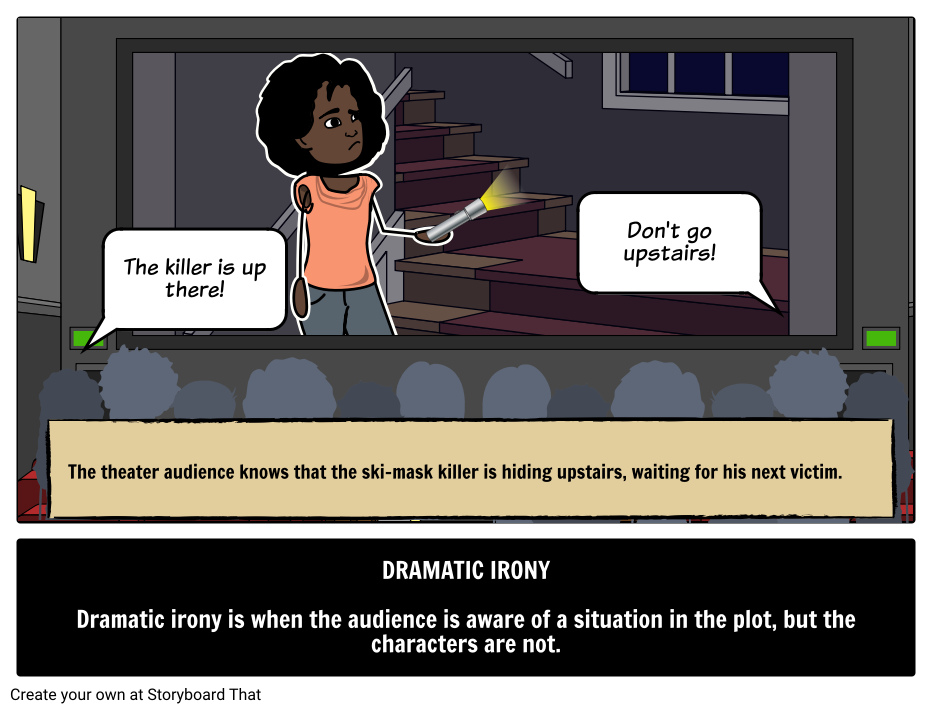Dramatic Irony Definition: when the audience is aware of a situation in the plot, but the characters are not
Dramatic Irony
Dramatic irony is used to enhance hidden meanings in dialogue or actions by characters, since the audience understands there is more going on than the characters themselves do. This knowledge can create an atmosphere of suspense, or even comedy. The characters who are unaware of the underlying truth of a situation will seemingly act inappropriately or even stupidly, because they do not know the true intentions of other characters, or the real events that have occurred in the plot. Their misunderstandings can lead to more conflict and a sense of tragedy for the audience or reader. For example, when Brutus is trying to decide whether or not to join the conspiracy against Caesar in The Tragedy of Julius Caesar, he receives several letters seemingly written by citizens of Rome, begging him to subvert Caesar’s power. This ultimately is what pushes Brutus to finally join the conspiracy, but the audience knows that those letters were written by Cassius, a greedy senator who wants to destroy Caesar and gain some of his power.
Notable Dramatic Irony Examples in Literature
- The real reason behind the witchcraft accusations in The Crucible
- Juliet’s potion that makes her appear dead in Romeo and Juliet
- Oedipus’ true identity in Oedipus Rex
- The true author of the letters in The Tragedy of Julius Caesar
- Montresor’s true intentions for Fortunato in “The Cask of Amontillado”
- Henry had actually run from combat in The Red Badge of Courage
Be sure to check out our article, Three Types of Irony!
Introductory School Offer
ONLY$500
- 1 School
- 5 Teachers for One Year
- 1 Hour of Virtual PD
30 Day Money Back Guarantee • New Customers Only • Full Price After Introductory Offer • Access is for 1 Calendar Year
© 2025 - Clever Prototypes, LLC - All rights reserved.
StoryboardThat is a trademark of Clever Prototypes, LLC, and Registered in U.S. Patent and Trademark Office




